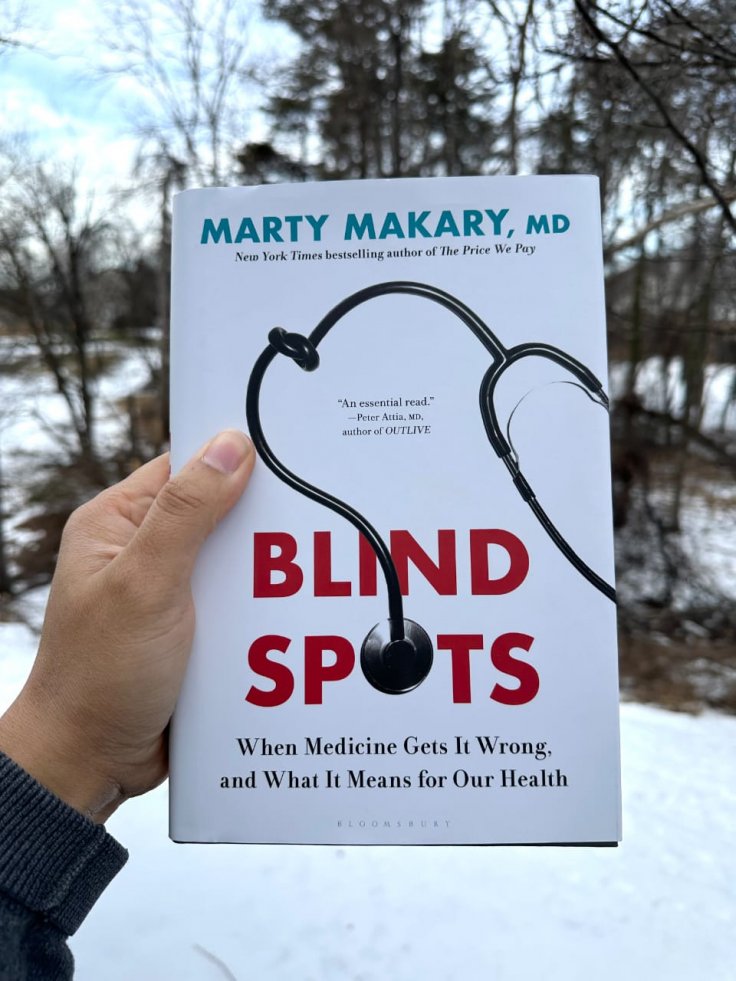A new book by Marty Makary, a surgeon at Johns Hopkins Hospital, focusing on rising concerns over medical overtreatment and inefficiencies within healthcare systems has become a sensation on the social media.
The book "Blind Spot: The Global Rise of Unnecessary Health Care and What We Can Do About It", presents data and case studies emphasizing how unnecessary medical procedures are impacting patient care and contributing to significant waste in healthcare spending, particularly in the United States.

Makary outlines findings that suggest over half of surgeries performed in the U.S. may not be medically essential. He raises concerns that some doctors recommend surgeries they would decline for themselves, reinforcing the growing issue of excessive medical intervention. The book points to this pattern as a critical factor behind inefficiencies within healthcare systems globally.
According to Makary, medical errors linked to overtreatment are now among the top causes of death in the United States, following heart disease and cancer. The book notes that approximately $1 trillion is lost each year due to unnecessary treatments, redundant testing, and administrative costs within the American healthcare system.
Blind Spot also discusses how hospital ranking systems may incentivize high volumes of procedures over patient outcomes. Makary references statistics showing that nearly 40% of knee replacements could be avoided if patients were given non-surgical treatment options such as physical therapy. He adds that cesarean sections occur in about one in three births in the U.S., with many cases lacking medical necessity.
Antibiotics' Overuse
The book addresses antibiotic overuse, highlighting how antibiotics are often prescribed for viral infections where they provide no benefit. Makary warns that such practices contribute to growing antibiotic resistance, a pressing public health concern.
Makary also draws attention to the lack of pricing transparency in healthcare. He explains that many patients only discover the financial impact of procedures after treatment, often resulting in unexpected bills and financial strain.
The treatment of terminally ill patients is another focus. Makary describes how aggressive care at the end of life frequently does not improve quality of life and may instead lead to further discomfort. He also notes that overdiagnosis is common with certain cancer screenings, such as prostate-specific antigen (PSA) tests, which may lead to unnecessary treatments and patient anxiety.
Financial Incentives
Blind Spot examines how financial incentives within healthcare systems influence decision-making. The book highlights that doctors are often reimbursed at higher rates for surgical procedures compared to non-invasive alternatives. Defensive medicine, where additional tests are ordered to prevent malpractice claims, is also identified as a contributor to overtreatment.
Makary further discusses how medical education may not sufficiently prepare doctors to weigh the financial implications of their clinical choices. He argues that the lack of emphasis on healthcare costs leaves some physicians unaware of how their recommendations can impact patients financially.
The book also notes that surgical complications are frequently underreported, limiting patients' ability to fully understand potential risks before consenting to procedures.
Makary calls for healthcare reform to reduce unnecessary medical care and promote a value-based system centered on patient outcomes and safety. He advocates for improvements in transparency, better education for both healthcare providers and patients, and a cultural shift toward prioritizing informed decision-making.
Blind Spot adds to Makary's previous work in addressing healthcare challenges. His earlier books include "The Price We Pay: What Broke American Health Care—and How to Fix It" and "Unaccountable: What Hospitals Won't Tell You and How Transparency Can Revolutionize Health Care". Both works examine inefficiencies and lack of accountability in healthcare systems, further contributing to the conversation about improving medical practices globally.









